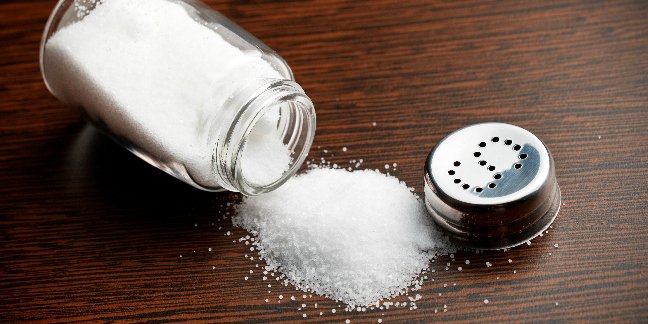The recommended salt intake is limited to sodium intake of 2,300 milligrams per day; which equates to about a teaspoon of salt.
However, Rachel Wagner, a dietitian at the University of Cincinnati in the United States, points out that the problem with excess sodium is that most are unaware of the “hidden” sources that contain it.
Lesser known include salad dressings , cheese, cereals, and sauces like soy, which contain 1,800 milligrams of sodium in one tablespoon.
7 diseases caused by excess sodium
A diet high in sodium directs water into the bloodstream , increasing blood volume which in the long term turns into high blood pressure. This is not the only disease related to excess sodium ,
YVK presents you with seven conditions. Discover them!
1. Asthma.
A diet high in salt is not a cause of asthma, but a study by Burney P. “Diet that potentiates asthma” found that a diet high in salt can aggravate asthma symptoms , since it contributes to physiological deterioration and increases bronchial hyperactivity.
2. Osteoporosis.
A study published by the Journal of Human Hypertension , prepared by experts Woo J. and Leung j, discovered that the higher the salt intake, the lower the Bone Mass Density, since the body increases the elimination of calcium.
3. Meniere’s disease .
Although rare, it is a progressive disease that damages the ear and can be caused by a metabolic imbalance of sodium in fluid in the inner ear , according to the Menier’s Society.
4. Diabetes.
Research published in the journal Life Sciences revealed that a higher salt intake is directly associated with an increased risk of developing diabetes.
5. Stomach cancer .
A study by the World Cancer Research Fund indicated that limiting sodium chloride intake would prevent 1 in 7 cases of stomach cancer.
6. Attacks to the brain.
Older adults who exceed the recommended dose of salt are three times more likely to suffer a stroke than those who follow the guidelines, according to research conducted by the University of Warwick in the United Kingdom.
7. Heart.
High blood pressure (also known as hypertension) forces the heart to work harder and can damage blood vessels and organs, increasing your risk for heart disease.














